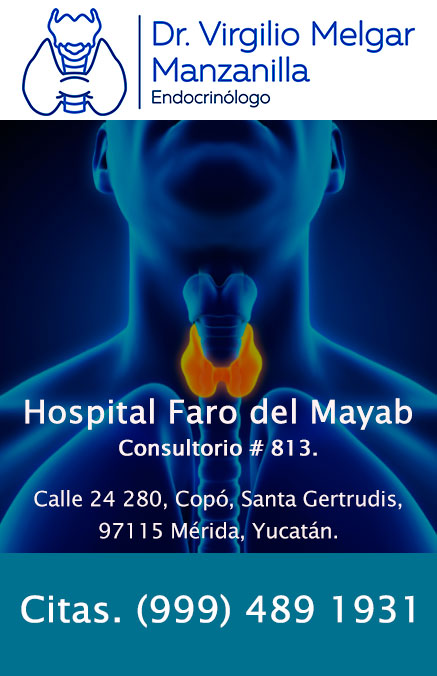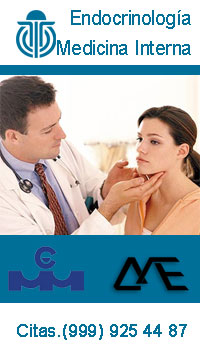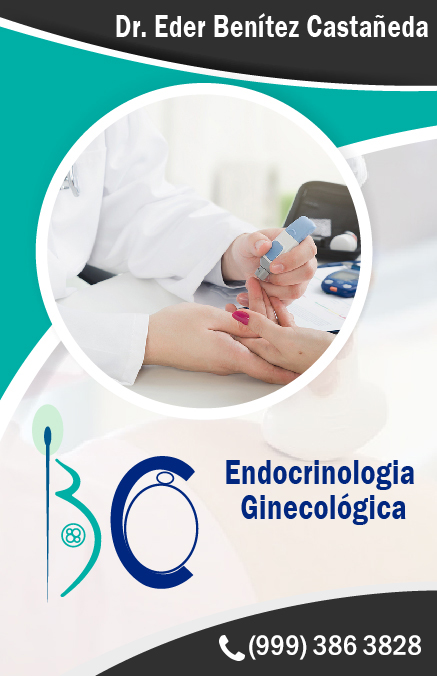Hypothyroidism
It is a condition in which the thyroid gland does not produce enough thyroid hormone.
Causes
The thyroid gland, located in the anterior part of the neck just below the larynx, secret hormones that control metabolism.
Hypothyroidism, or hypoactive thyroid, is more common in women and people over 50 years old.
The most common cause of hypothyroidism is thyroiditis.Swelling and inflammation damage the cells of the thyroid gland.The causes of this problem include:
- an attack on the thyroid gland by the immune system
- cold or other respiratory infection
- Pregnancy (often called " postpartum "thyroiditis ")
other causes of hypothyroidism include:
- Certain medications, such as lithium or amiodarone
- Congenital anomalies (at birth)
- Radiation therapies to the neck or brain to treat different cancers
- Radioactive iodine used to treat a hyperactive thyroid
- Surgical removal of part or all the thyroid gland
- Sheehan syndrome, a condition that can occur in a woman who bleeds profusely during pregnancy or delivery and causes destruction of the pituitary pit
Symptoms
Initial symptoms:
- Hard stools or constipation
- Increased sensitivity to cold
- fatigue or feel slow
- Abundant menstrual periods
- Muscle or articular pain
- PALUST or STRESS SKIN
- Sadness or depression
- Hair or brittle and weak nails
- weakness
- Weight Gain (Involuntary)
Late symptoms, if left untreated:
- Decreased sense of taste and smell
- Ronquera
- Swelling of the face, hands and feet
- Slow speech
- Thickening of the skin
- Slimming of the eyebrows
Tests and exams
A physical examination can reveal the presence of a smaller thyroid gland than normal, although, sometimes, the gland is normally or even enlarged (goiter). The exam can also reveal:
- British nails
- Cosco facial features
- Pale or dry skin that can be cold to the touch
- swelling in arms and legs
- Slim and brittle hair
Some of the laboratory tests to determine the thyroid function are:
- Thyroid stimulating hormone exam (TSH)
- T4 exam
Other exams that can be done:
- cholesterol levels
- Hemogram or full blood count (CSC)
- Hepatic enzymes
- prolactin
- sodium
Treatment
The purpose of treatment is to replenish the thyroid hormone that is lacking. Levothyroxine is the medication that is used more frequently.
- Doctors will prescribe the lowest dose possible to alleviate the symptoms and bring hormonal levels into the blood back to normal.
- If you have heart disease or it is older, the doctor can make the treatment start with a very small dose.
- Most people with a hypoactive thyroid will need life therapy.
When you start taking the medication, the doctor can check hormonal levels every 2 or 3 months. After that, the levels of the thyroid hormone must be monitored at least annually.
Important things to remember when you are taking thyroid hormone are:
- Do not stop taking the medication when you feel better. Continue taking it exactly as the doctor told him.
- If you change the brand of the thyroid medication, let it know the doctor. Possibly you need to take control of the levels.
- What you eat can change the way the body absorbs the medication for the thyroid. Talk to the doctor if you are consuming many soy products (soy) or a diet rich in fiber.
- The medication for the thyroid works better with the empty stomach and when it takes an hour before any other medication.
- Do not take thyroid hormone with fiber, calcium, iron, multivitamins, aluminum hydroxide antacids, cholestipol or medications that attach bile acids.
While taking the replacement therapy for the thyroid, tell the doctor if you have any symptom that suggests that your dose is too high, such as:
- Palpitations
- Rapid weight loss
- restlessness or tremors
- sweating
The Mixedematic Coma is a medical emergency that occurs when the level of thyroid hormone in the body becomes extremely low, and is treated with thyroid hormone substitute therapy intravenosay steroid medicines. Some patients may need complementary treatment (oxygen, artificial respiration, replacement of liquids) and intensive care care.
Forecast
In most cases, thyroid levels return to normal with appropriate treatment. However, replacement therapy with thyroid hormone should be taken for the rest of life.
The Mixedematous Coma can produce death.
Possible complications
The Mixedematic Coma, the most severe form of hypothyroidism, is rare and can be caused by infection, disease, exposure to cold or certain medications in people who have not received treatment for hypothyroidism.
The symptoms and signs of the mixedematic coma are, among others:
- Temperature below normal
- Decrease in breathing
- Low blood pressure
- Low glycemia
- Lack of reaction or response
Other complications are:
- cardiopathy
- Increased risk of infection
- Infertility
- Spontaneous abortion
People with hypothyroidism without treatment are at greater risk of:
- Give birth to a baby with congenital defects
- heart disease due to higher levels of LDL cholesterol (" bad ")
- Heart Insufficiency
People treated with too much thyroid hormone are at risk of presenting angina or heart attack, as well as osteoporosis (thinning of bones).
When to contact a medical professional
Check with the doctor if you have symptoms of hypothyroidism (or mixedema).If you are receiving treatment for hypothyroidism, call the doctor if:
- presents thoracic pain or accelerated heartbeat
- has an infection
- Symptoms worsen or do not improve with treatment
- develops new symptoms



